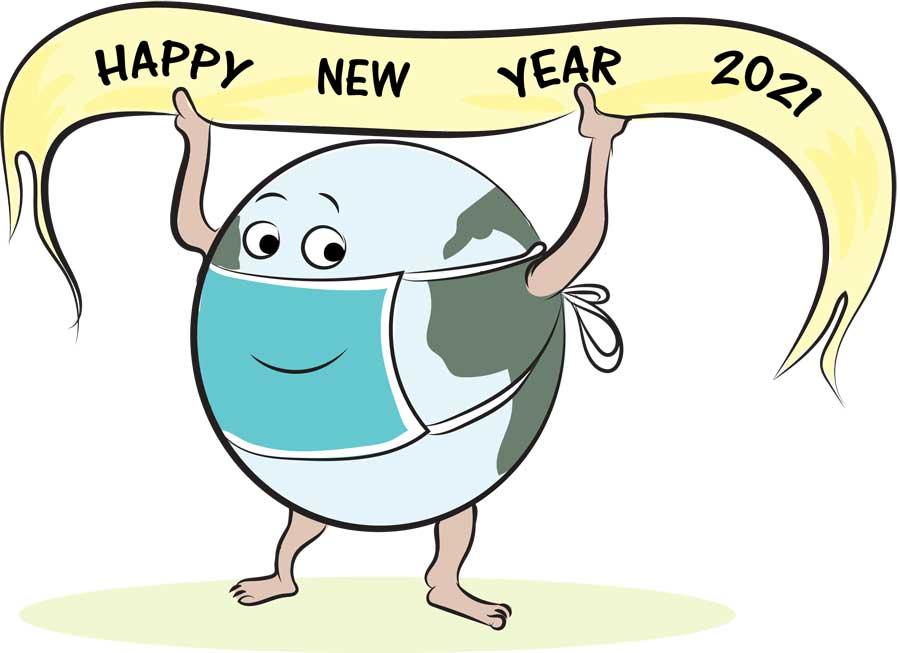Reply To:
Name - Reply Comment

As we dawn another year this morning, we wish our readers a very happy, COVID-19-free and prosperous New Year. As the year 2021 dawns, we cannot help, but remember the past year. A year dominated by the coronavirus pandemic. It is our fervent expectation that all our fellow citizens will strictly abide by the guidelines given us by our health authorities to combat the pandemic.
In the end, following health guidelines, offer the best hope of slowing the spread of the dreaded virus, until such time as our government is able to purchase sufficient stocks of vaccine to inoculate the population and thus help raise our resistance to the virus.
This is the sobering truth we are forced to face as a new year dawns on us. Our government – yours and mine - does not have the withal to purchase sufficient stocks of vaccine to protect
its citizens.
However, even if we did have this capacity, our situation would not be very different, as a small group of rich countries have used their vast capital resources to corner vaccine stocks far in excess of their population needs.
According to the British Charity Oxfam, these rich countries representing just 13% of the world’s population have already cornered more than 51% of the promised doses of leading COVID-19 vaccine candidates. According to Oxfam, the poorer nations may have to wait until late 2023 to receive their first doses of the vaccine. We, from the not so materially rich nations of the world, hope that the rich countries, during the New Year will commit to sharing resources more equitably.
According to the World Health Organization as at December 30, 2020, there have been 80,773,033 confirmed cases of COVID-19, including 1,783,619 deaths, reported to it. Around the same time, the Harvard Chan study led by Xiao Wu and Rachel Nethery and senior author Francesca Dominici found an association between air pollution and an 11% increase in mortality from COVID-19 infection for every 1 microgram/cubic meter increase in air pollution.
Asia is among the biggest contributors to air pollution. WHO has described India’s capital Delhi as the most polluted city in the world. Speaking to ‘STAT News’ Dominici stressed the study suggested that, the countries with high levels of air pollution is where there is a need to implement social distancing measures now more than ever, knowing that people here will be susceptible to die from COVID-19”.
The problem is so bad, authorities in India continue calling on inhabitants to forego traditional fireworks during the Hindu festival of Diwali in a bid to free its capital from
toxic smog.
In Sri Lanka, during the civil war, lighting of firecrackers were banned and probably saved the worst of air pollution. This year, since the pandemic struck, fireworks were lit on a more subdued level during the Sinhala/Tamil New Year and at Christmas, but of a sudden, during the past two weeks, stalls selling fireworks popped up all over the city and were selling like hot-cakes.
Without any doubt, many of us not only bought fireworks, we lit them as well. But, today the number of persons contracting the virus has increased by leaps and bounds. During the second wave of the virus, the number of persons contracting COVID-19 has risen many times over and air pollution is going to worsen their plight.
Is it not time for us, as a nation to give up our childish love of a minutes beauty of a firework? Should we not be concerned about the well-being of our fellow men/women?
The sparkles from fireworks last a few seconds, but the air pollution can linger in our midst for hours. This pollution also contributes to the growing number of fatalities among people contracting the virus, and the number of fatalities keep growing by the day.